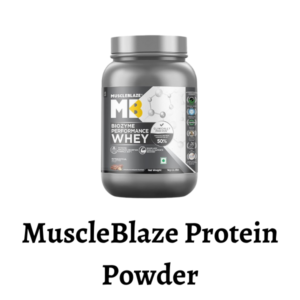Choosing a healthy product for your pet dog is a crucial responsibility that contributes to their overall well-being and longevity. Whether it’s food, treats, toys, or grooming products, making informed decisions ensures that your furry friend receives the essential nutrients and care they need. In this comprehensive guide, we will delve into various aspects of selecting healthy products for your canine companion.
1. Understand Your Dog’s Unique Needs:
Dogs come in various breeds, sizes, and ages, each with its own set of nutritional requirements. Start by understanding your dog’s specific needs based on factors such as breed, age, size, activity level, and health conditions. Puppies, adult dogs, and seniors have different nutritional needs, so tailor your choices accordingly. Consulting with your veterinarian is a crucial first step in determining your dog’s specific requirements.
2. Read and Analyze Dog Food Labels:
When choosing a healthy dog food, the label is your primary source of information. Look for products that list real meat, such as chicken, beef, or fish, as the main ingredient. Avoid foods with excessive fillers, by-products, and artificial additives. Terms like “corn gluten meal” and “meat by-products” can indicate lower quality. Opt for foods with clear and transparent labels that provide information on protein, fat, fiber, and essential nutrients.
3. Choose High-Quality Protein Sources:
Dogs are carnivores, and their diet should primarily consist of high-quality animal protein. Look for dog food that specifies the source of protein, such as “chicken” or “salmon.” Avoid ambiguous terms like “meat meal” or “animal by-products.” High-quality protein supports muscle development, immune function, and overall health.
4. Consider Breed and Size-Specific Formulas:
Some dog breeds have specific dietary requirements. Large breeds may benefit from food formulated to support joint health, while small breeds may need smaller kibble sizes. Many reputable dog food brands offer breed or size-specific formulas to cater to these unique needs.
5. Mindful of Allergies and Sensitivities:
Just like humans, dogs can have allergies or sensitivities to certain ingredients. Common allergens include grains like wheat and soy, as well as certain proteins. If your dog exhibits signs of allergies or sensitivities, such as itching, digestive issues, or ear infections, consider switching to a limited ingredient diet or hypoallergenic formula.
6. Avoid Harmful Additives and Fillers:
Artificial preservatives, colors, and flavors have been linked to various health issues in dogs. Opt for products that use natural preservatives, such as mixed tocopherols (Vitamin E). Additionally, minimize the use of fillers like corn, soy, and wheat, as they contribute to calorie-dense, nutritionally poor diets.
7. Check for Essential Nutrients:
Ensure that your chosen dog food provides a balanced mix of essential nutrients, including vitamins and minerals. Adequate levels of nutrients like omega-3 fatty acids, glucosamine, and chondroitin contribute to skin and coat health, joint support, and overall vitality.
8. Evaluate Treats and Snacks:
Treats and snacks are an integral part of your dog’s diet, but they should also contribute to their overall health. Choose treats made with high-quality ingredients, and be mindful of portion sizes to prevent overfeeding. Some treats are specifically formulated to address dental health, providing an additional benefit.
9. Consider Age-Appropriate Products:
As your dog ages, their nutritional needs may change. Puppies, adult dogs, and seniors have different requirements for growth, maintenance, and overall health. Choose age-appropriate food and supplements to support your dog’s specific life stage.
10. Regularly Monitor and Adjust:
Dogs are individuals, and their needs may evolve over time. Regularly monitor your dog’s weight, coat condition, and overall health. If you notice any changes, consult with your veterinarian to make informed adjustments to their diet. Regular veterinary check-ups are essential for addressing any emerging health concerns.
Choosing a healthy product for your pet dog involves a combination of understanding their unique needs, scrutinizing product labels, and making informed decisions. Prioritize high-quality protein sources, avoid harmful additives, and consider age-specific formulas to ensure your dog receives the nutrition they need for a long and healthy life. Regular veterinary consultations and open communication with your veterinarian will help you make adjustments to your dog’s diet and lifestyle as needed. By taking a proactive approach to your dog’s well-being, you’ll be contributing to a happy and vibrant life for your beloved canine companion.





